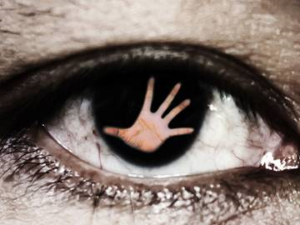Dne 22. 2. 2021 si celá Evropa připomněla Den obětí trestných činů jako vzpomínku na Chartu práv obětí, která byla podepsána ve Velké Británii tentýž den v roce 1990, ale také s cílem zejména zvýšit povědomí o právech a potřebách obětí trestných činů.
Při této příležitosti publikovala Agentura Evropské unie pro základní práva (FRA) výsledky z celoevropského průzkumu Kriminalita, bezpečnost a práva obětí. V tomto průzkumu FRA posbírala data od 35 tisíc lidí v celé EU (jsou dostupná srovnání i po jednotlivých zemích), kdy se zaměřila na zkušenosti respondentů, zda se stali oběťmi vybraných druhů trestných činů včetně násilných činů, obtěžování a majetkové trestné činnosti. Zpráva také uvádí, jak často oběti ohlašují tyto trestné činy policii, ale také mj. zmiňuje další podrobnosti vztahující se k pachatelům násilných trestných činů a obtěžování, nebo k místům, kde k takovým deliktům dochází.
Důležitým sdělením FRA, se kterým se zcela ztotožňujeme, je přání, aby se oběti nebály nebo nestyděly přijít oznámit, co se jim stalo, aby mohla policie, a nejen ona, konat. Ve všech případech je nutné podporovat multidisciplinární spolupráci nejen pro úspěšné vyřešení případu, ale také pro účinnou pomoc oběti.
Více si můžete přečíst ve zprávě níže (dostupná v anglickém jazyce), kde také naleznete odkazy na samotnou zprávu, graficky zpracované výstupy či video představující zprávu a její výsledky.
Evropský den obětí trestných činů si připomněla také Policie ČR ZDE
či Probační a mediační služba ČR ZDE
Violence and harassment across Europe much higher than official records
 More than one in four Europeans were victims of harassment and 22 million were physically attacked in one year. But crime victims typically do not report their experiences. They often have difficulties accessing their rights and may feel voiceless. These are the results of the first-ever EU-wide survey on the general population’s experience of crime, carried out by the EU Agency for Fundamental Rights (FRA). The results reveal how targeted measures can help governments support victims and make it easier to report crime and receive justice.
More than one in four Europeans were victims of harassment and 22 million were physically attacked in one year. But crime victims typically do not report their experiences. They often have difficulties accessing their rights and may feel voiceless. These are the results of the first-ever EU-wide survey on the general population’s experience of crime, carried out by the EU Agency for Fundamental Rights (FRA). The results reveal how targeted measures can help governments support victims and make it easier to report crime and receive justice.
“The great difference between official crime figures and people’s experiences of crime shed light on the true extent of crime in the EU. The findings tell us that young people, people who do not identify as heterosexual, and people with disabilities are particularly affected by crime,” says FRA Director Michael O’Flaherty. “The EU has legislation to meet the rights of crime victims, as underpinned by the EU Charter of Fundamental Rights. National governments need to do more to grant victims their rights and provide the support they need.”
Victims are often unaware of their rights or left voiceless. They do not report crimes because of fear of retaliation or intimidation from offenders.
FRA’s ‘Crime, safety and victims’ rights’ report should guide national policymakers as they deliver on their international commitments and the EU’s victims’ rights laws. It complements the EU Strategy on victims’ rights which aims to empower victims of crime to report it more frequently. It calls for Member States to:
The report captures the views of 35,000 people and their experiences of violence, harassment, burglary and consumer fraud, and the impact on victims. The results also examine people’s views on safety and their willingness to act when witnessing a crime.
It is one of a series of reports looking at people’s views and experiences of fundamental rights. The findings draw on responses to FRA’s Fundamental Rights Survey from across all EU Member States, North Macedonia and the United Kingdom. It ran from January to October 2019.
Ipsos MORI collected the data on behalf of FRA, in cooperation with Statistics Netherlands (CBS) in the Netherlands, the Centre des Technologies de l'Information de l'Etat (CTIE) in Luxembourg and Statistics Austria in Austria.
For more, join FRA’s online panel debate ‘Crime, victims and rights: what can EU countries do to strengthen victims’ rights?’ at 10:30 CET on 19 February 2021.
informuje OPK